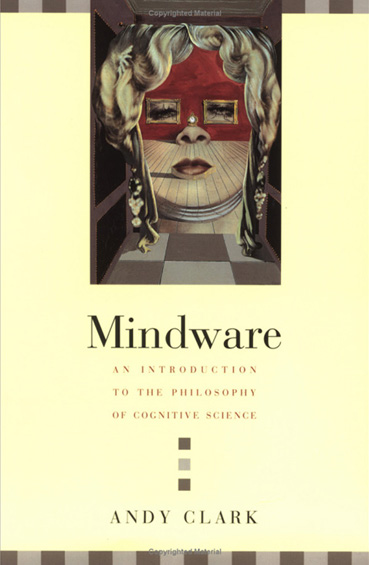| |
Mindware: An Introduction To The Philosophy Of Cognitive Science |
|
|
| [ 发布日期:2009-04-30 ] 【返回】 |
by Andy Clark (Author)
Book Details
Paperback: 224 pages
Publisher: Oxford University Press, USA; illustrated edition edition (December 21, 2000)
ISBN-10: 0195138570
ISBN-13: 978-0195138573
Product Dimensions: 9.1 x 6.1 x 0.6 inches
Shipping Weight: 11.4 ounces
Review
"A lively whirlwind tour of emerging issues in cognitive science. Definitely a 'no-holds-barred journey' that engages the reader immediately and is sure to challenge students and researchers alike. The numerous recommendations for further reading and the appendix on consciousness are great bonuses."--Bryan Benham, University of Utah
"A good and easy introduction to cognitive science."-- Piero Scaruffi, Thymos.com
Description
Mindware: An Introduction to the Philosophy of Cognitive Science invites readers to join in up-to-the-minute conceptual discussions of the fundamental issues, problems, and opportunities in cognitive science. Written by one of the most renowned scholars in the field, this vivid and engaging introductory text relates the story of the search for a cognitive scientific understanding of mind. This search is presented as a no-holds-barred journey from early work in artificial intelligence, through connectionist (artificial neural network) counter-visions, and on to neuroscience, artificial life, dynamics, and robotics. The journey ends with some wide-ranging and provocative speculation about the complex coadaptive dance between mind, culture, and technology.
Each chapter opens with a brief sketch of a major research tradition or perspective, followed by short yet substantial critical discussions dealing with key topics and problems. Ranging across both standard philosophical territory and the landscape of cutting-edge cognitive science, Clark highlights challenging issues in an effort to engage readers in active debate. Topics covered include mental causation; machine intelligence; the nature and status of folk psychology; the hardware/software distinction; emergence; relations between life and mind; the nature of perception, cognition, and action; and the continuity (or otherwise) of high-level human intelligence with other forms of adaptive response. Numerous illustrations, text boxes, and extensive suggestions for further reading enhance the text's utility. Helpful appendices provide background information on dualism, behaviorism, identity theory, consciousness, and more. An exceptional text for introductory and more advanced courses in cognitive science and the philosophy of mind, Mindware is also essential reading for anyone interested in these fascinating and ever-changing fields.
Mindware is an introductory text with a difference. In eight short chapters it tells a story and invites the reader to join in some up-to-the-minute conceptual discussion of the key issues, problems, and opportunities in cognitive science. The story is about the search for a cognitive scientific understanding of mind. It is presented as a no-holds-barred journey from early work in Artificial Intelligence, through connectionist (artificial neural network) counter-visions, and onto neuroscience artificial life, dynamics and robotics. The journey ends with some wide-ranging and provacative speculation about the role of technology and the changing nature of the human mind itself. Each chapter is organized as an initial sketch of a research program or theme, followed by a substantial discussion section in which specific problems and issues (both familiear and cutting-edge) are raised and pursued. Discussion topics include mental causation, the hardware/software distinction, the relations between life and mind, the nature of perception, cognition and action, and the continuity (or otherwise) of high-level human intelligence with other forms of adaptive response. Classic topics are treated alongside the newer ones in an integrated treatment of the various discussions. The sketches and discussions are accompanied by numerous figures and boxed sections, and followed by suggestions for futher reading.


|

